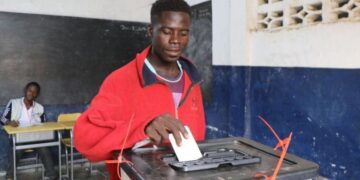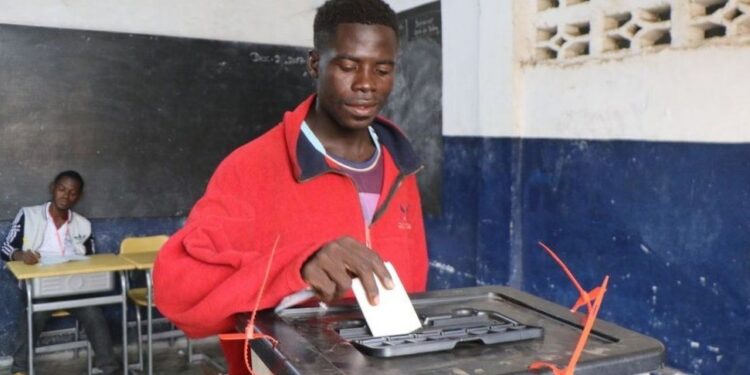By John Ikani
Liberians are heading to polls to vote in a closely contested presidential election.
The election features former football icon George Weah, 57 who is seeking re-election for a second term.
His primary rival is former Deputy President Joseph Boakai, 78.
Boakai’s campaign bears the slogan “Rescue,” contending that Liberia’s fortunes declined during Weah’s initial six-year tenure in office.
Conversely, Weah exudes confidence in securing victory, asserting that he has maintained stability in Liberia and improved its educational landscape.
Notably, this election marks the first time a generation of young voters, born in Liberia’s post-civil war era, will participate in choosing the nation’s leader.
The brutal civil war, responsible for an estimated 250,000 casualties, concluded two decades ago.
Many Liberians advocate for the establishment of a war crimes court to hold key figures accountable for their actions during the conflict, arguing that the absence of such justice perpetuates impunity.
However, Weah resists this pressure, contending that dwelling on past transgressions does not facilitate development.
Boakai, along with prominent contenders Alexander Cummings, a businessman, and Tiawan Gongloe, a human rights lawyer, have pledged to establish the court.
Approximately 2.4 million people have registered to vote, with polls scheduled to open at 08:00 GMT.
A total of 19 candidates, including two women, challenge Weah’s incumbency, succeeding Africa’s first female elected president, Ellen Johnson Sirleaf, who concluded her two-term presidency in 2018.
In addition to the presidential race, voters will also elect parliamentary representatives.
Despite skirmishes between rival camps in the campaign’s closing days, Liberia’s major political parties have committed to maintaining peace during the election. Election-related violence resulted in three deaths in September.
Weah, the 1995 FIFA World Player of the Year, ventured into politics following his retirement from football. He secured his initial term in 2017 with 61% of the vote in a run-off, defeating Boakai, who had previously served as Sirleaf’s deputy.
Analysts speculate that this may be Boakai’s final bid for the presidency.
Critics have bestowed the moniker “Sleepy Joe” upon the 78-year-old Boakai, alleging that he nods off during public events.
He portrays himself as an ordinary, honest man from humble beginnings and staunchly criticizes Weah’s administration.
Boakai has vowed to enhance infrastructure, invest in agriculture, and boost tourism, while also accusing Weah of failing to combat corruption.
In 2018, a Liberian court issued arrest warrants for over 30 former central bank officials following the disappearance of $104 million (£85 million).
Additionally, last year, Weah dismissed three senior officials, including his chief of staff, after they were sanctioned by the US government for corruption, though they denied wrongdoing.
Weah dismisses allegations of unfulfilled promises from his 2017 campaign, asserting that he has made significant progress during his first term, including the introduction of free university tuition.
If re-elected, he pledges to continue economic reforms, emphasizing job creation. According to the World Bank, Liberia’s economy grew by nearly 5% last year.
Nonetheless, the UN development agency reports that 52% of the population lives in poverty, with an additional 23% at risk of falling into poverty.
With more than 60% of the population under the age of 25, Liberia’s young generation stands at the forefront of this pivotal election.




































